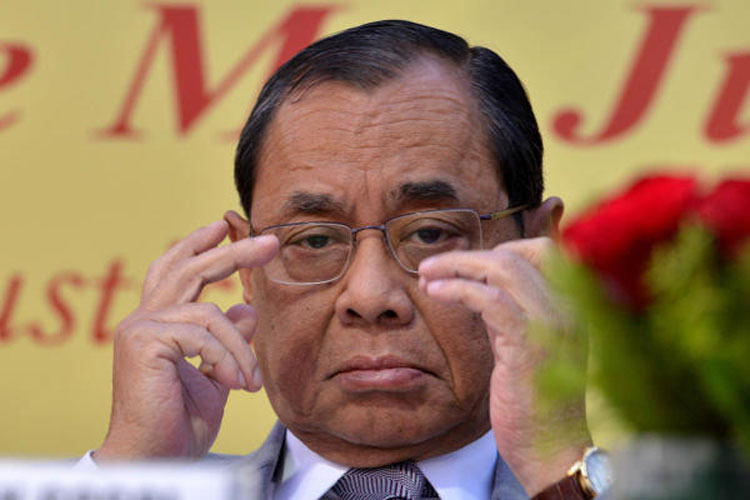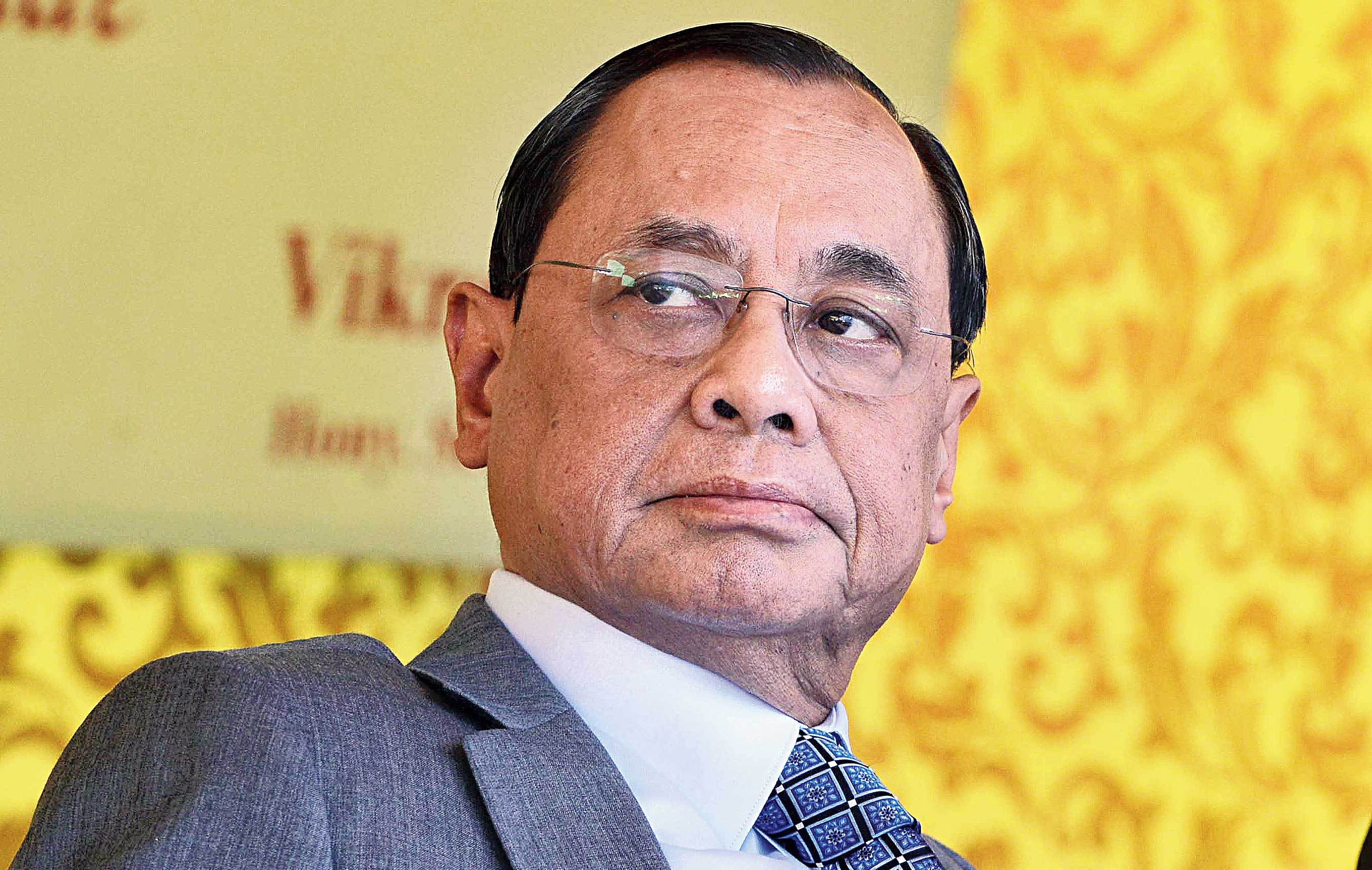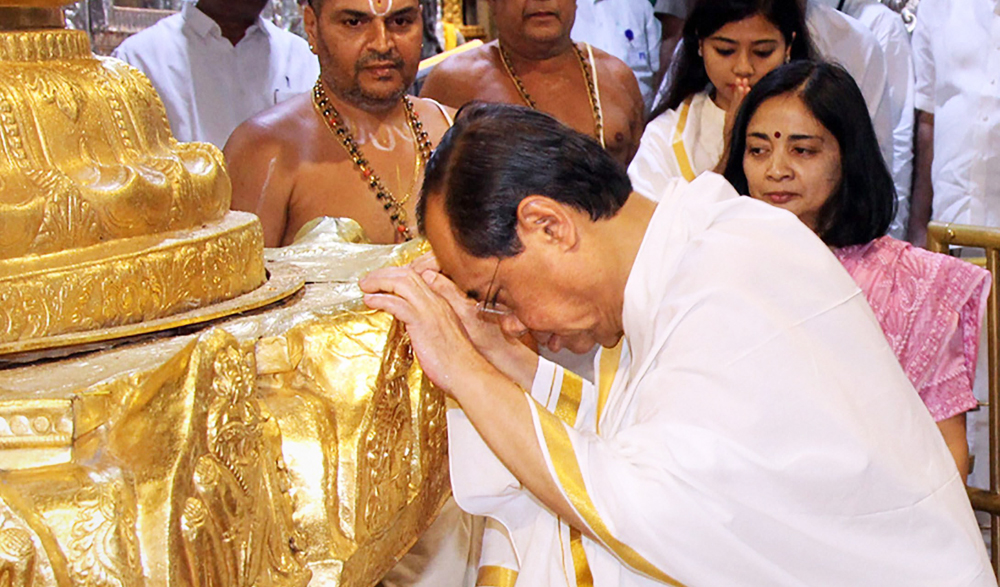A group of women’s organisations, lawyers, scholars and civil society members has written an open letter to the Supreme Court, expressing solidarity with the decision of the woman who has accused the Chief Justice of India of sexual harassment to withdraw from the court’s in-house committee proceedings.
The group has asked for the constitution of a special enquiry committee that will look into the allegations following the right procedures.
The letter says that the reasons provided by the complainant justify her decision to abstain from the proceedings, given “the context of total imbalance of power” with her on one side and members of the highest judiciary on the other.
After the complainant’s decision not to participate in the process, the Chief Justice of India is said to have appeared before the committee and the committee has decided to proceed with the enquiry ex-parte, the letter mentions.
“By this very conduct the committee has completely delegitimised itself. If the committee continues to proceed with the enquiry instead of satisfactorily concluding the matter it will raise many more questions,” the letter says. “If the highest judicial authority does not follow its own procedures and stand up in support of the less powerful, it will send a message of disquiet to all those keeping faith in the system,” the letter adds.
Signatories to the letter include more than 300 organisations and individuals from the country, including several eminent advocates. Lawyer Flavia Agnes is a signatory.
The letter makes four demands of the court:
- A special enquiry committee consisting of credible individuals be constituted, ensuring an atmosphere of transparency and confidence for the complainant.
- The special enquiry committee should follow the norms of the internal committee within an organisation to look into sexual harassment charges.
- The Chief Justice of India should refrain from transacting official duties and responsibilities until the completion of the enquiry.
- The complainant must be allowed to be represented by a lawyer/support person of her choice.
The letter says that the three-judge enquiry committee is “inherently flawed”, as the Chief Justice is senior to the three judges hearing the complaint and is head of the institution.
“The committee also does not adhere to the spirit of either the 2013 Act or the Vishaka Guidelines, laid down by the Hon’ble Supreme Court itself in 1997. The absence of an external member, whose role is to ensure that there is no undue pressure or influence on either the complainant or the witnesses during the enquiry, casts a shadow on the intent behind and the purpose of setting up this committee itself,” says the letter.
The Vishakha Guidelines were drawn up to look into allegations of sexual harassment at the workplace after women’s activists fought for long for such legal provisions.
On April 20, several websites published the accusations brought against Chief Justice of India Ranjan Gogoi by the complainant. Within an hour of the accusations being made public, Gogoi held an extraordinary hearing the same day claiming the charges were a conspiracy.
On April 30, the complainant, a former Supreme Court employee, announced that she will not participate further in the Supreme Court in-house enquiry committee proceedings looking into her allegations.
She said her decision was prompted by the fact that the committee refused to let her have a lawyer or a support person with her.
“It’s rather strange that the Supreme Court is refusing to constitute a special enquiry committee to look into the allegations,” says Kavita Srivastava, president of the Rajasthan chapter of the People’s Union of Civil Liberties (PUCL), who had played an important role in the adoption of the Vishakha Guidelines by the Supreme Court and is a signatory to the letter.
“This committee has judges who are junior to the Chief Justice. And Justice Gogoi sat in judgment on himself,” says Srivastava.
“I was Vishakha general secretary when we brought into the public domain this issue and the Supreme Court gave us these guidelines. It is shocking to now see judges wanting to be above the law,” she adds.
Srivastava feels that the special enquiry committee could be formed with a retired woman judge and credible indviduals from other walks of life.













